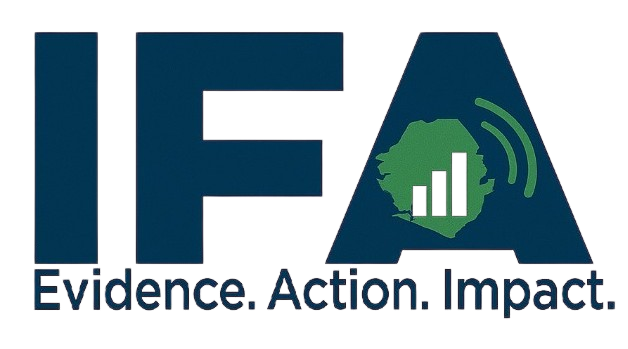Our Work in the Environment
Information For All (IFA) applies a community-centered, evidence-driven approach to environmental and WASH research, focusing on both behavioral and systemic factors that influence access, quality, and sustainability. Our methods are tailored to local realities and grounded in participatory practices that amplify the voices of those most affected by environmental degradation and WASH challenges.
Data Collection
IFA uses mixed methods approaches to gather both qualitative and quantitative data from communities, institutions, and service providers. This includes:
- Household Surveys
Structured questionnaires to assess access to clean water, latrine use, handwashing practices, waste disposal methods, and perceptions of environmental risks.
- Environmental Mapping
Geo-tagged data collection to identify physical environmental hazards (e.g., open defecation sites, waste dumps, water sources) using GPS-enabled tools.
- Key Informant Interviews (KIIs)
Interviews with local authorities, WASH service providers, school officials, and community leaders to understand systemic gaps and governance issues.
- Focus Group Discussions (FGDs)
Conducted with youth, women, and vulnerable groups to explore cultural practices, barriers to WASH adoption, and environmental concerns such as flooding or deforestation.
- Observation Checklists
Used in schools, health centers, and households to assess functionality of latrines, presence of handwashing stations, drainage systems, and water storage practices.
Research and Analysis
- Thematic Analysis (Qualitative)
Identifying recurring patterns, community perceptions, and context-specific challenges related to hygiene practices, waste management, and water safety.
- Descriptive and Comparative Analysis (Quantitative)
Using statistical tools (SPSS, Excel) to measure changes over time or differences across regions (e.g., urban vs. rural, school vs. home environments).
- Risk and Vulnerability Assessment
Evaluating exposure to environmental risks such as contaminated water, poor drainage, or inadequate sanitation infrastructure, especially in slums and flood-prone areas.
